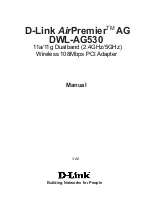
WDM console – all products
41
S/PDIF
– The Sony/Phillips Digital Interchange Format is a serial bit-stream that
has a clock signal embedded in the data stream. When recording from an S/PDIF
source, whether via optical cables or RCA cables, Echo products will utilize the
synchronization clock that is embedded in the S/PDIF while it decodes the
bitstream. Your Echo digital audio system can only sync to S/PDIF clock if the
master device is set to a sample rate between 30kHz and 50kHz. Otherwise you
will get noise and/or loss of sync.
Note:
When recording from a S/PDIF port, you must select
S/PDIF
as the
input clock. For greater flexibility, this is not done automatically. If you
find that your S/PDIF recordings contain pops or skips, be sure that you
have selected
S/PDIF
as your input clock.
ADAT
– (Layla24/Gina24) The Alesis ADAT optical interface can send and
receive up to 8 simultaneous channels of digital audio data over fiber optic cables.
Unlike wire cables, fiber optic cables do not add noise or interference. Layla24
and Gina24 can send out (or “master”) ADAT clock as well slave to it. If you want
the interface to slave to an ADAT clock, just set the input clock to the
ADAT
setting. Layla24/Gina24 can only sync to ADAT clock if the master device is set to
a sample rate between 40kHz and 50kHz. Otherwise you will get noise and/or loss
of sync.
Note:
To preserve the high audio quality of Layla24/Gina24’s converters it
is best to use the
Internal
input clock setting instead of synchronizing to an
external ADAT clock, which may add unwanted jitter to the signal.
Esync
– Esync is a proprietary form of super clock that is used to synchronize two
or more Echo 24-bit products like Layla24, Gina24, and Darla24. While Gina24
and Darla24 have both input and output connectors on their PCI cards, Layla24
only has the Esync output connector.
Layla24/Gina24 are always transmitting Esync clock.
Mia and MiaMIDI do not support the Esync feature.
WDM console – all products
















































